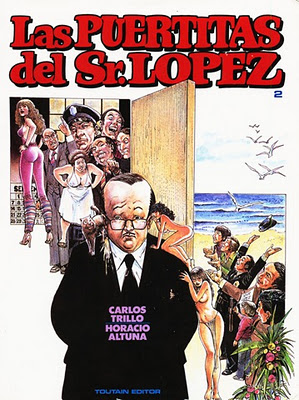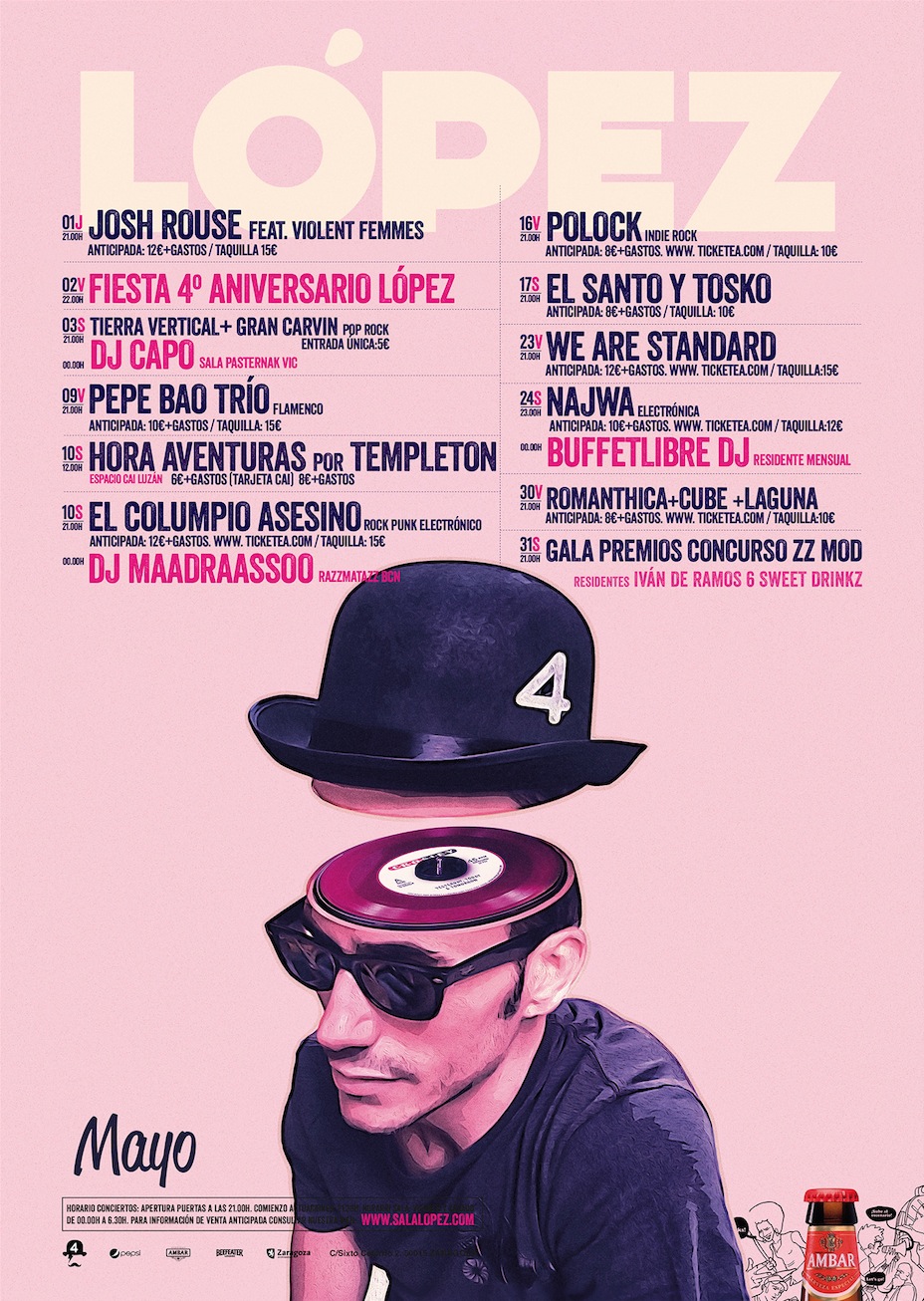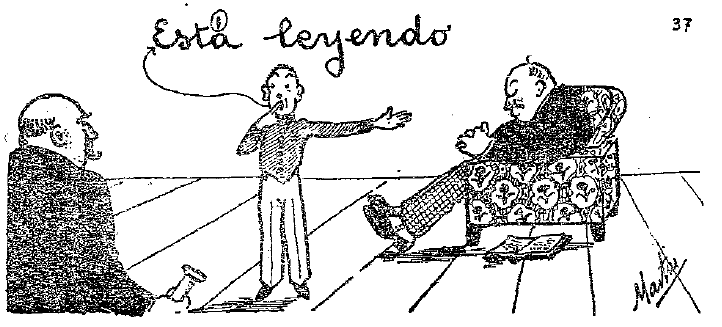
| Языки :: Испанский |
| Аудио |

 |
|
 |
|
107 |
Español |
Spanish |
|
Lección Treinta y siete (37) |
||
| Más chistes (1) | More jokes. | |
| 1 |
Entonces. - ¿Está el señor López (2) ? - Lo siento mucho, señor, pero no puede recibir visitas. |
Then... - Is Mr. Lopez at home? - I very much regret, sir, but he can't receive visitors [visits]. |
| 2 | ¿Está enfermo? - Está leyendo. | Is he ill? - He is reading. |
| 3 | Pero eso no es motive para que no pueda recibir (3). |
But this is no reason why [for that] he should not be able to receive. |
| 4 |
Sí, señor. Me ha prohibido terminantemente despertarle cuando está leyendo. |
Yes, sir. He has strictly forbidden me to wake him up when he is reading. |
| 5 |
El gran cazador. - Hoy he visto veinte patos en el aire, volando uno detrás del otro. |
The great sportsman. - To-day, I saw 20 ducks in the air, flying one behind the other. |
| 6 |
No lo creo. - Entonces vamos a decir diez. - Tampoco lo creo. |
I don't believe it. - Then, let's say ten. - I don't believe it, either. |
| 7 |
De todos modos eran por lo menos dos (4). Si no, no hubieran podido velar uno detrás del otro. |
Any way they were at [for the] least two. If not, they could not have flown one behind the other. |
| 8 |
Claro. - ¿Qué prefieres : un abrigo de cibelina o quince días en Paris? |
Of course. - Which do you prefer : a sable fur coat or a fortnight in Paris? |
| 9 |
¡Quince días en Paris! Además, es mejor comprar allí el abrigo... ¿no te parece? |
A fortnight in Paris! Besides, it's better to buy the coat over there, don't you think so [does it not seem so to you] ? |
| EJERCICIOS | EXERCISE : | |
| 1 | ¿Qué estaba usted haciendo? | What were you doing? |
| 2 | Estaba leyendo. | I was reading. |
| 3 | Perdóneme si le he molestado. | Pardon me if I have disturbed you. |
| 4 | ¡ Hombre! no. Me alegro verle; siéntese. | No, indeed, I am glad [rejoice] to see you. Sit down. |
| 5 |
¿Qué le ha ocurrido (or :
pasado) anoche? |
What happened [passed] to you [him] yesterday night? We have been waiting for you [him]. |
| 6 | Lo siento mucho, pero no me fue posible salir de casa; | I regret [it] very much; but it was not possible for me to leave my house; |
| 7 | acababa de comer cuando llegaron mis vecinos con sus hijos, | I had just dined [finished dining] where my neighbours arrived with their children, |
| 8 | y se quedaron hasta las diez. | and they stayed until 10. |
| 9 | ¿Y después? - Como estaba cansado, me acosté. | And then? - As I was tired, I went to bed. |
| NOTES. | |
| 1 |
Do you want more bread? : ¿Quiere
más pan ? - Do you want more? : ¿ Quiere más ? - Nothing more, thank you : Nada más, gracias. - A little more, please : un poco más, haga el favor. |
| 2 |
It's useless to add : en casa, in the house,
owing to the difference between está and es. |
| 3 |
Para que no pueda, subjunctive. No puede : he cannot. |
| 4 |
With a number, one always uses ser and not estar. - So for the time : son las tres, eran las cuatro, it is 3, it was 4. |
|
On the types of less. 35, let us practice to-day : |
